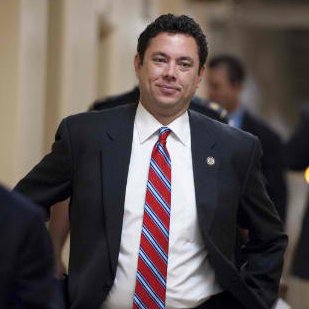Can Pennsylvania Effectively Regulate Internet Gambling?

 Members of the Pennsylvania Senate Community, Economic, and Recreational Development Committee (CERD) heard testimony from several of the state’s regulators on Wednesday to assess the Pennsylvania Gaming Control Board‘s (PGCB) ability to police the online gambling industry. That would, of course, only happen if iGaming were legalized in the Commonwealth. Some information for this article was taken from a hearing summary on USPoker.
Members of the Pennsylvania Senate Community, Economic, and Recreational Development Committee (CERD) heard testimony from several of the state’s regulators on Wednesday to assess the Pennsylvania Gaming Control Board‘s (PGCB) ability to police the online gambling industry. That would, of course, only happen if iGaming were legalized in the Commonwealth. Some information for this article was taken from a hearing summary on USPoker.
PGCB Executive Director Kevin O’Toole was the first to offer testimony in the hearing. He expressed confidence that internet gambling could be safely regulated, citing the clean track record of legalized iGaming sites in Nevada, New Jersey, and Delaware. He described PGCB officials as “experienced and capable” and assured their ability to regulate the internet gambling environment in an “efficient and controlled manner.”
Next up was PGCB’s Douglas Sherman, who spoke on the legality of the industry in the US, focusing on the Wire Act of 1961 and the UIGEA. He explained that the Department of Justice changed its opinion on the Wire Act in 2011, concluding that it only applied to sports betting, not online poker or other forms of gambling.
 He also touched on the Sheldon Adelson-backed Restoration of America’s Wire Act(RAWA), anti-online gambling legislation introduced by Congressman Jason Chaffetz (R-Utah, pictured) in the US House.
He also touched on the Sheldon Adelson-backed Restoration of America’s Wire Act(RAWA), anti-online gambling legislation introduced by Congressman Jason Chaffetz (R-Utah, pictured) in the US House.
Sherman highlighted the threat imposed by RAWA, stating that if the bill passes, Pennsylvania would lose its chance to offer iGaming. With that legislation looming, many state lawmakers believe an online gambling bill should be passed sooner rather than later in order to ensure that the industry would be grandfathered in if a bill like RAWA were successful.
During questioning, O’Toole stated that it would take between 9 and 12 months from a law passing for internet gaming to go live. He described geolocation technology as impressive and said that age verification systems could weed out underage players handily.
There seemed to be a common misconception among lawmakers and regulators that no research has been done regarding the effect online gambling sites would have on brick-and-mortar casinos. State Senator Robert Tomlinson suggested that a Pennsylvania casino lost 20% of its players to New Jersey online gambling, yet presented no information as to how that figure was calculated.
In reality, studies have already been done on the New Jersey iGaming market. These have shown there is little to no cannibalization by iGaming sites and that the market for online players is completely different from the market that favors land-based casinos.
 Michael Cruz, PGCB Chief Technology Officer, later fielded questions on the effectiveness of geolocation systems ensuring that players are physically inside the state. He described how New Jersey players close to the state border can be “pinged” more frequently to verify their location. He also asserted that regulators could set up an online environment that would be safe from hackers.
Michael Cruz, PGCB Chief Technology Officer, later fielded questions on the effectiveness of geolocation systems ensuring that players are physically inside the state. He described how New Jersey players close to the state border can be “pinged” more frequently to verify their location. He also asserted that regulators could set up an online environment that would be safe from hackers.
With the hearing winding down, PGCB’s Ken Martz spoke about the issue of problem gambling, saying it was “better to prevent” the problem than treat it. Commonwealth casinos, including Parx(pictured), currently contribute $150,000 a year to address compulsive gamblers.
He also stated his concern that the ease of access to gambling would increase the number of gambling addicts. Again, this research has already been conducted and concludes that the rate of problem gamblers would not be likely to increase significantly.
The hearing is the committee’s second to focus on iGaming in the past two weeks. Earlier this month, CERD heard testimony from 11 of Pennsylvania’s casino stakeholders, who gave their thoughts on Ward’s iGaming legislation, SB 900. State lawmakers have introduced several online gambling bills so far this session.
Visit PocketFives’ Pennsylvania poker community for the latest news and discussion from Pennsylvania players.
Want the latest poker headlines and interviews? Follow PocketFives on Twitterand Like PocketFives on Facebook.




